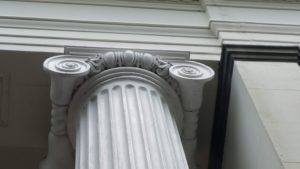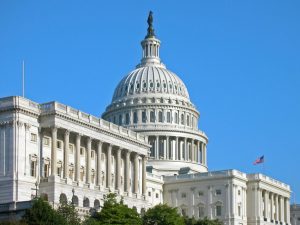Historical Ignorance Raises Flags
Usually, when something alarming happens, it raises red flags. But this time, it was the raising of a flag (and not even a red one) that caused alarm. The left is manufacturing controversy out of whole cloth again—in their ongoing assault on one of the conservative justices on the Supreme Court.
First, they went after Justice Samuel Alito because of abortion, as he was the chief author of the Dobbs decision of 2022, which overturned the infamous 1973 Roe v. Wade decision that led to the death of some 60 million fellow Americans through abortion.
What Dobbs did was to allow the states to decide for themselves their own abortion policy.
For this, the left protested him, even at his own home. To my knowledge, no one on the left voiced objection to these brownshirt tactics.
Then they went after Alito for flying an American flag at his home upside down—which they read as a distress signal supporting the January 6 protests.
And now the left is excoriating him for daring to fly a flag from the Revolutionary War. This flag, which is a field of white and shows an evergreen tree pointing to the sky, states: “An Appeal to Heaven.”
The left is using these flag flaps as a strategy to sideline Alito. NBC News reported that Senate Judiciary Committee Chair Dick Durbin, D-Ill., told reporters that he wants Alito to recuse himself on some cases because of the flags.
The New York Times essentially accused Alito of guilt by association—since that flag was carried by a few of the protesters who descended on the Capitol building on January 6, 2021, who questioned the legitimacy of the 2020 presidential election results.
CNN adds that they think the “An Appeal to Heaven” flag has “become a symbol for supporters of former President Donald Trump.”
But Senator John Fetterman of Pennsylvania opined: “If that dude wants to fly his freak flag — it’s very strange.” “Freak flag”?
We live in a day of widespread historical ignorance. Either the elite are ignorant of our American heritage or they are committed to a vision that excludes the key principle of the American experiment: self-rule under God.
What do we know about this classic flag, “An Appeal to Heaven,” other than that it was used during the American War for Independence?
The “An Appeal to Heaven” flag was adopted on October 21, 1775. That was the same year our war for independence began in Massachusetts on the fields of Lexington and Concord. That was also the same year that George Washington was appointed as our first Commander-in-Chief.
Early in this role, Washington commissioned six schooners for our nascent navy. In 1775, Col. Joseph Reed, under Washington’s command, proposed that a flag be made with a white background with a tree in the middle bearing the motto, “An Appeal to Heaven.” He proposed that this flag be placed on the six schooners deployed to defend the Boston harbor.
What is the origin of the phrase on that banner? An “Appeal to Heaven” comes directly out of the writings of John Locke, a British political philosopher from the 1600s in England. He was extensively quoted by the founders. In his 1690 Second Treatise on Civil Government, Locke used the phrase an “appeal to heaven”—meaning asking for God’s help, should all else fail.
Here is his direct quote: “And where the body of the people, or any single man, is deprived of their right, or is under the exercise of a power without right, and have no appeal on earth, then they have a liberty to appeal to heaven, whenever they judge the cause of sufficient moment.”
The two key founding documents of America are the Declaration of Independence (1776) and the Constitution (1787). The Declaration of Independence declares independence from England and at the same time it declares dependence upon God. It can be summed up this way: “Here we rule by the consent of the governed because our rights come from God.”
Initially, the founders of this country had no other outside help—including aid from France (which did eventually come). In the Declaration, they declared themselves to be “appealing to the Supreme Judge of the world for the rectitude of our intentions.”
Dr. Peter Lillback, founder of Providence Forum, for which I now serve as executive director, once told me that by that phrase, the founders, being mostly Biblical Christians, are referring to Jesus here since He is the One who will be humanity’s judge.
It’s amazing that one of the banners of the era appealing to God for His help would become so controversial today. But maybe not surprising when you realize that perhaps it’s simply a cynical (and coordinated) strategy to marginalize one of the most influential conservative justices.
###
Dr. Jerry Newcombe is the executive director of Providence Forum, a division of Coral Ridge Ministries, where Jerry also serves as senior producer and an on-air contributor. He has written/co-written 33 books, including (with D. James Kennedy), What If Jesus Had Never Been Born? and (with Dr. Peter Lillback), George Washington’s Sacred Fire.




